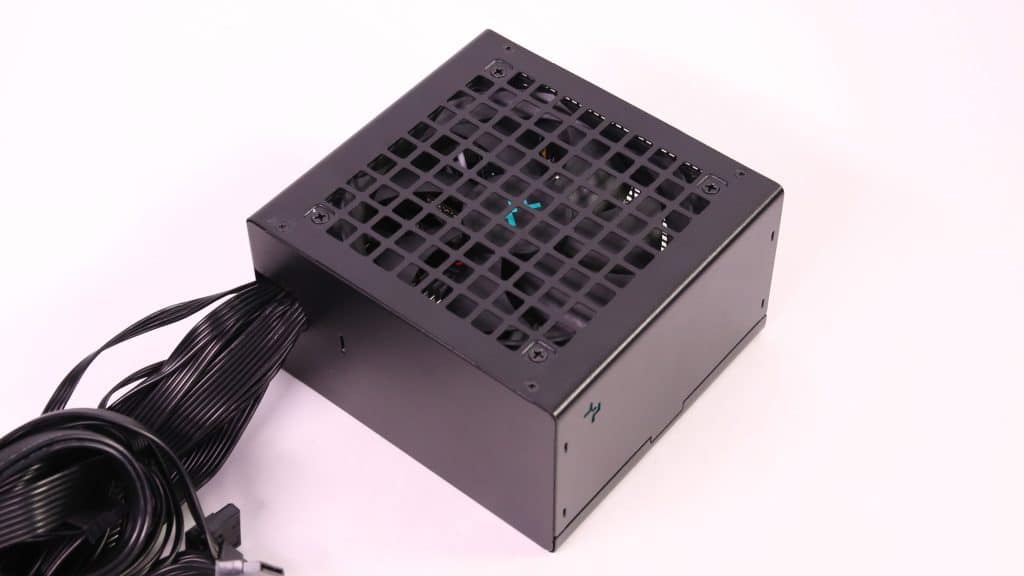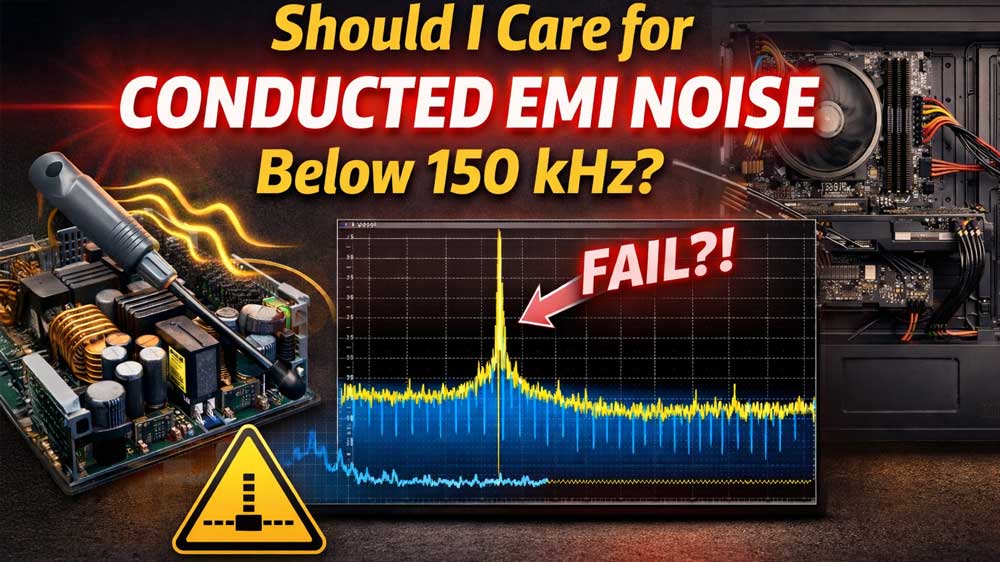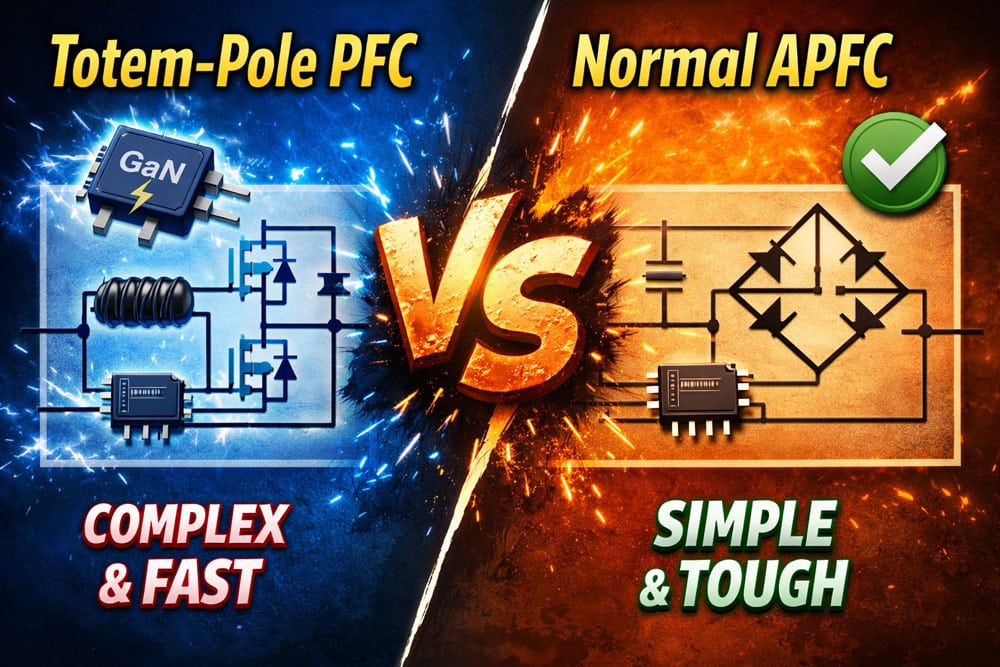Epilogue
The PL-D series is the first to bring highly affordable ATX v3.1 PSUs to the masses, using an older Helly platform with a double forward topology, which was popular several years ago when most PSUs were Bronze-rated. With today’s standards, bronze and silver efficiency levels are low, with many gold units sold at reasonable prices and available from various brands and manufacturers. The problem is that ATX v3.x compatibility still costs a premium, so it is nice to see budget ATX v3.1 units offered by a big brand since this will push other brands to follow this path.
To keep the cost down, the PL-D units don’t have any modular cables, which are very helpful during the system’s setup. The soldering quality is good on the internals, but the parts are not from known manufacturers to save money. Still, Deepcool seems to believe in this platform’s reliability; otherwise, it wouldn’t support it with a five-year warranty.
The PL550D passes the strict ATX v3.1 transient response tests, which apply up to 200% of the PSU’s max power loads, but it fails to meet the above 60% efficiency requirements, meaning that it cannot get an ATX v3.1 badge. I asked Deepcool to fix that and send two samples for re-testing. Who said that a reviewer’s life is easy? Moreover, given the lower than 17ms hold-up time, this unit cannot get an ATX v3.0 badge either since this spec requires at least 17ms of hold-up time, a requirement that was loosened up in the ATX v3.1 spec, which only asks for 12ms hold-up time. Lastly, the 600W setting of the PSU’s 12+2 pin connector is insane, given that the unit’s max power is 550W!
Regarding performance, load regulation is tight on all rails since the PSU’s low capacity and the native cables help there. Moreover, ripple suppression is good, and the 12V rail keeps its voltage at a reasonable level under increased transient loads. Because of the outdated design, the average efficiency is not high, but the unit still achieves a Cybenetics Silver efficiency rating. I couldn’t find a US price, but Deepcool mentions a €49 price tag in Europe, which is low even for a “plain” 550W unit.
A note about the Chengx capacitors on this unit’s primary and secondary sides: you should not be afraid of them, thinking that they are crap. The quality and performance of the Chinese caps have been tremendously improved in the last few years. Chengx also makes caps for several big names in the industry, including known Japanese capacitor brands. Look at my evaluation tests if you want facts and not just rumors about capacitor performance.
Another thing I want to mention here is the ATX spec that this unit is compliant with. Although Deepcool mentions ATX v3.0, since it uses native cables, it can automatically meet the ATX v3.1 requirement if they fix the platform to achieve over 60% efficiency with a 2% load. There is no change in the 12VHPWR or 12V-2×6 cable; only the 12+4 pin headers are changed on PSUs that have them on their modular panels and the graphics cards. This means that PSUs using a pair of 8-pin sockets or the ones with native cables, which already meet the ATX v3.0 requirements, are automatically upgraded to ATX v3.1. I already talked to Deepcool about that, and they told me that the marketing material and badges will have the ATX v3.1 badge in the next production batch. They should also use the corresponding Cybenetics badges.
Before investing in a new power supply, read my Best ATX v3.x PSUs article to check all alternative PSU offerings. You help me a lot by using my affiliate links, which don’t increase the product’s price. I get a commission from Amazon every time you do it, which can make a difference for me, especially now that I am on my own, working exclusively for my media and not for someone else.
- Most affordable 550W PSU meeting ATX v3.1 power excursions
- Delivered full power at 47°C
- Good soldering quality
- Low inrush currents
- Properly set 12V OCP
- Highly efficient 5VSB rail
- Low standby power
- Alternative Low Power Mode (ALPM) compatible
- HDB advertised fan (from an unknown brand)
- Enough cables and connectors, including a high-power one (12+2 pin, 600W)
- Five-year warranty
- OCP triggering points need tuning on the minor rails.
- OPP triggering points need fixing
- The 600W setting for the unit’s 12+2 pin connector is insane!
- Below 60% efficiency with a 2% load (costing the ATX v3.1 compatibility badge)
- Noisy operation
- Outdated platform
- Not efficient design, especially at light loads
- APFC converter needs tuning for higher PF readings
- Mediocre transient response, especially at 3.3V
- ATX cable should be 600mm long
- Short distance (100-105mm) between peripheral connectors





Hi, please tell us how it is “almost” ATX 3.1? This is branded as ATX 3.0 lots of your other reviews also state ATX 3.1 when even the PSU box says ATX 3.1
Also does this PL550D have a 12V2X6 connector?
Please read the review, I explain everything in it.
Hello. Thank you for the information about this product. Did you measure the hold up time of this PSU under 100% load?
Yes